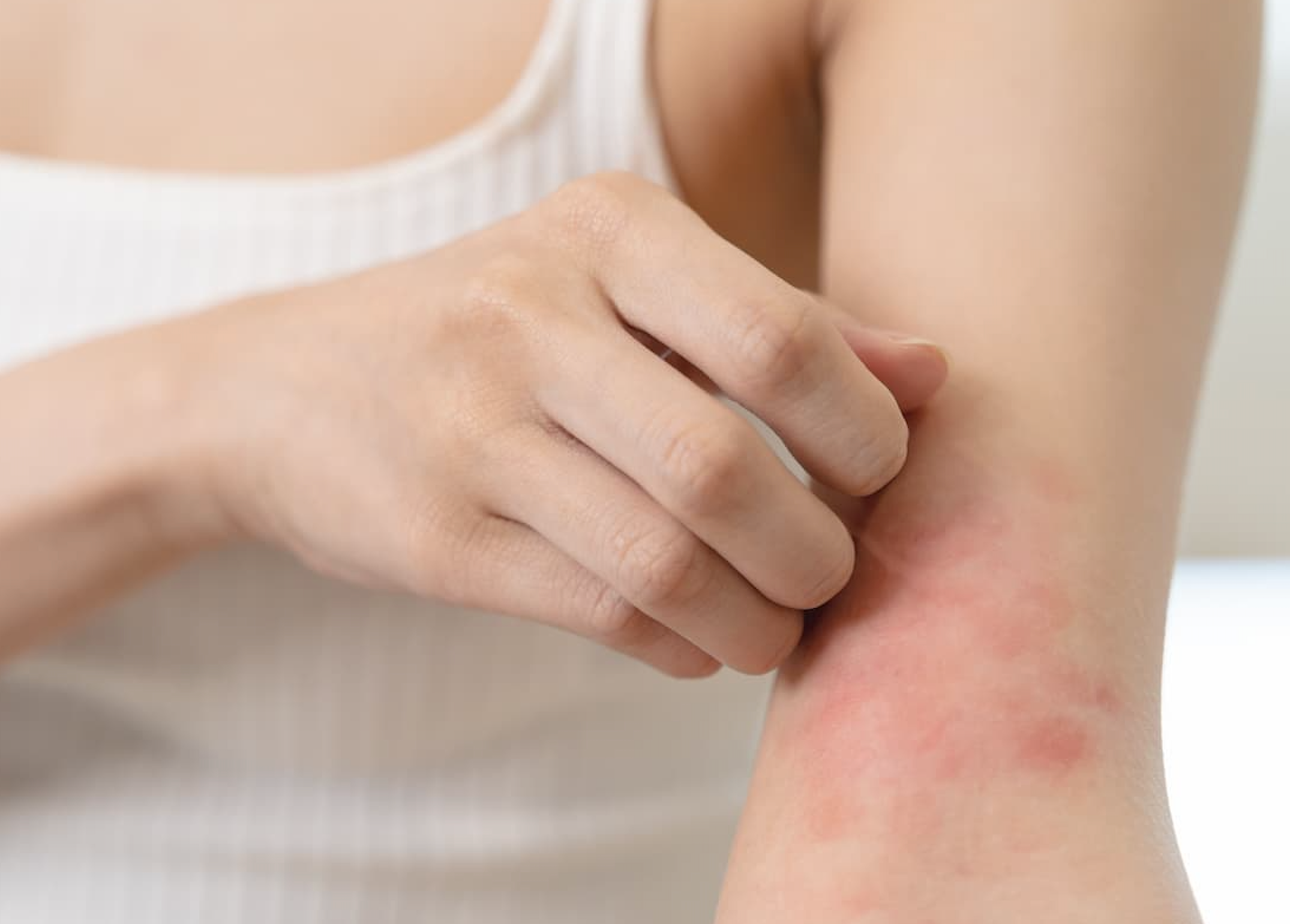
Anne Marie Singh, M.D., Sets the Record Straight on Eczema Triggers
Anne Marie Singh, M.D., says that eczema has no single cause or cure, and families should be cautious about blaming one trigger like food.
By
Lana Pine| Published on June 18, 2025
3 min read
Atopic dermatitis (AD), also known as eczema, can be incredibly frustrating for families. It often comes and goes unpredictably — and while many people are searching for a “silver bullet” to make it go away for good, Anne Marie Singh, M.D., a pediatric allergist and immunologist at the University of Wisconsin, says that unfortunately, there’s still no cure.
A common misconception, she explains, is the idea that eczema is caused by just one trigger — like a specific food or environmental factor — that can be eliminated. In reality, eczema is a complex condition with many possible triggers, including the following:
- Food allergies
- Airborne allergens (like pollen, pet dander and dust mites)
- Irritants
- Stress
- Infections
- Illnesses
While food allergies and eczema often occur together (up to 50% of children with eczema may have a food allergy), Singh stresses that it’s rare for food to be the only cause of eczema flare-ups. If a child is suspected of having a food allergy, it’s important to see a board-certified allergist for proper testing and diagnosis — not just remove foods based on guesswork.
She also emphasizes how vital it is for health care providers — allergists and dermatologists in particular — to work together when treating children with eczema. Coordinated care and consistent messaging help families feel supported and ensure children get the most effective treatment.
Singh is optimistic about the future of eczema care. New research is helping doctors identify which children with eczema are at higher risk for other allergic diseases like food allergies, asthma and hay fever — and more importantly, how to prevent them. For example, introducing foods like peanuts and eggs early and often has been shown to help prevent food allergies in some children.
She’s also excited about the new wave of treatment options now available. In addition to long-standing therapies, doctors now have access to the following:
- Biologics (advanced injectable treatments targeting specific parts of the immune system)
- Small-molecule oral medications
- Topical nonsteroidal medications that treat inflammation directly on the skin without the side effects of systemic drugs
These newer treatments offer more personalized and effective options, and they give hope to many children and families dealing with eczema.

